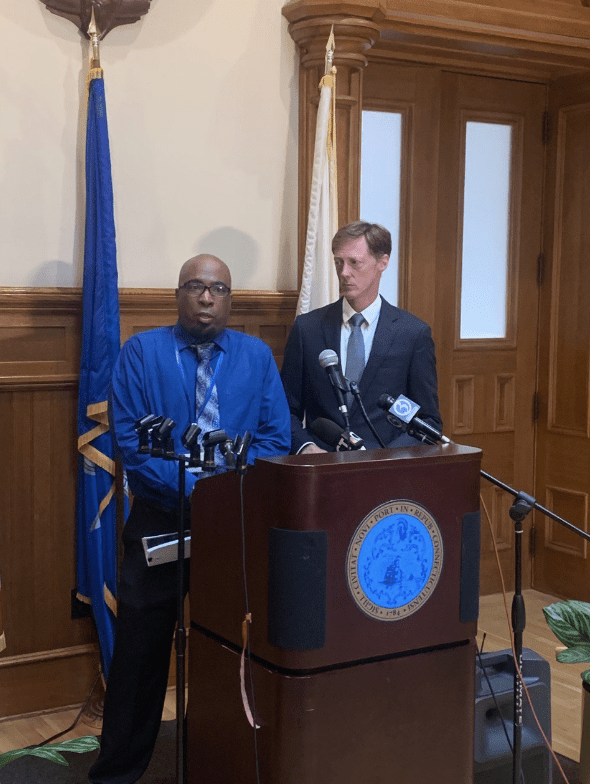City sets aside part of $22.2 million surplus for rainy day fund
The Elm City will put $15 million of the total surplus to its settlement with Randy Cox, saving the rest in its fund balance.

Yurii Stasiuk, Contributing Photographer
Mayor Justin Elicker expressed optimism over New Haven’s fiscal health, as he announced last week that the city ran a budget surplus for the third year in a row.
In the fiscal year 2023, which ended on June 30, the city’s revenues exceeded expenditures by $22.2 million. Approximately $15 million of the surplus will go toward paying off a portion of the city’s settlement with Randy Cox. The city will put the remaining money — about $7 million — in its fund balance, or rainy day fund. The pool acts as a money reserve that will allow the city government to continue its services in times when income drops.
“We want to be good fiscal stewards of the city,” Elicker said, explaining the decision to save surplus money for the future, instead of spending it now on city services. “Frankly, these kinds of surpluses we are not likely to see in the future.”
New Haven received $115 million as part of the federal pandemic-relief American Rescue Plan Act program, which was used to bolster city services during the pandemic. To date, the city has allocated $96.3 million, with $19.5 million remaining. After ARPA funds run out, the city will have a harder time financing some of its services, Elicker said.
With ARPA funding, the city financed housing services, youth development programs, vocational education and business grants.
Currently, there are 231 unfilled positions across city departments, mainly in the police department, according to Elicker. Because of the vacancies, City Controller Mike Gormany said, in the past fiscal year the city saved around $5 million in salary expenditures — one of the main contributors to the city surplus.
Elicker expressed hope that the city will fill its vacancies, but fewer vacancies will mean that the city will have to spend more on salaries.
“What’s important is that for this time period, we put some of money aside,” Elicker said, “so that when we do face financial challenges in the future, we have some funding [and] don’t have to cut services.”
Elicker told the News that the budget surplus and rainy day fund will help the city deal with large unexpected expenditures, like the Randy Cox settlement.
Last week, Westville Alder Adam Marchand, who is a chair of the Board of Alders Finance Committee, told the News that before city administrators announced the surplus, the Committee was considering taking out debt through a bond program.
“That was not clear at the moment of the committee action, but it was clear as of today,” Marchand added when the Board of Alders authorized using $15 million from the surplus for the city’s settlement with Randy Cox.
Following the last fiscal year, New Haven’s rainy day fund will total to close to $43.9 million. Elicker said that a good practice for cities is to have a fund balance be roughly 16 percent of their annual budget — for New Haven, this equals around $100 million.
On the revenue side, the city collected $7.3 million more than expected in property tax. This change, Elicker said, was driven by property development and reevaluation of property values. The increased property values led to Elicker announcing plans in 2022 to gradually phase in tax increases for many residents.
When New Haven receives a significant cash influx from the state or federal government, Elicker explained, the city invests it before spending the money. As the Federal Reserve has raised interest rates from 2.25 percent to 5.25 percent during the 2023 fiscal year, the city received higher than expected interest income on the invested funds, which increased the city’s budget revenue by $5.8 million.
Elicker told the News that the city capped its ongoing borrowings at $30 million. Those borrowings are invested in New Haven infrastructure, according to Elicker. In the future, he said he hopes to further reduce the city’s reliance on bonds by financing some of the regular investments, like buying new police vehicles, with a general fund.
For the fiscal year 2024, New Haven’s cumulative budget is $665 million.







